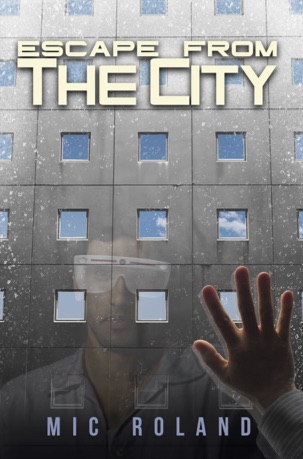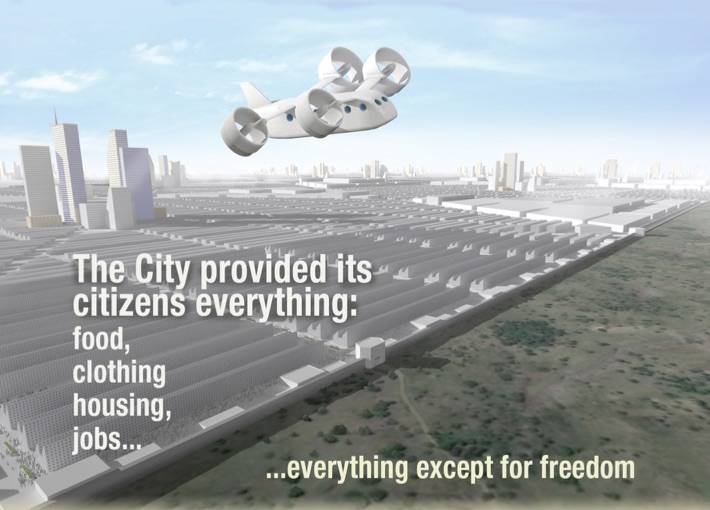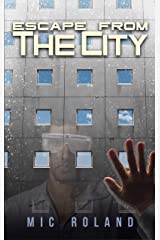Escape From The City

My most recent release on Amazon is something different for post-apocalyptic survival fiction. This story is set several generations in the future. It started with a thought experiment. What if some future world government forced everyone to live in one of several huge cities in order to save the planet from the spoiling hand of brutish mankind?
What would life in such a huge city be like? A government with enough power to force the world’s population into their vast, planned communities, would be powerful enough to control just about everything else in peoples’ lives. Running the socialist utopian dream forward in time, The City would provide everything for its citizens — that is, everything the rulers decided that their people absolutely needed. The people own nothing. Citizens have only what The City loans them — their clothes, their meals, their apartments, their jobs — everything comes from The City. And as such, The City can take it away.
Another wrinkle to this dark future is that the rulers had decided that men and women could no longer mingle. Men mixing with women was just too much trouble. It was a tall order, but totally necessary for the orderly running of the modern single-party state.
Relations between men and women created innumerable social ills: jealousies, rape, fights, murder — all stemming from humanity’s savage libido. There could be no more mothers and fathers having children. Loyalty to mother, father, or child created competing loyalties to something other than The City. No, the modern citizen had to look upon The City as its only parent and benefactor they had ever known. There could be no thoughts of love to interfere with production quotas. All former romantic literature was done away with so no one would have even a literary model of love. Without women to fight over or woo, men could be tamed, peaceful, dependable workers. Love had to be sacrificed for the modern, efficient state.
Amid such a bleak dystopia, what if there was one young man who somehow failed to be sufficiently stupefied and pacified by City systems that he began to think for himself? To make matters worse, he has also begun to like a city girl, even though he is unsure why. He knows that his speaking to her is a crime. He would not realize it at the time, but his independent tendencies were actually a crime that gets him banished to The Outside.
Beyond city walls, Nature has taken over most of what had been America. Vast forests have recovered the hills and valleys. The prairie has reclaimed former farmland. The blight of the old cities has been removed. Animal populations have recovered such that they support a healthy number of alpha predators lurking in the darkness. This reality is why Ford and his workmates are not expected to survive long in The Outside.

When they become stranded, they are forced to work together, to summon whatever shreds of the Old Man is within them, to survive in the wilderness. Ford further complicates things by insisting that he will not only survive but return to The City to rescue the girl he likes.
—
Escape from the City was a really different sort of story to write. It felt like a prophecy of what the world would become if the current “progressive” agenda were given free rein. Smart Cities and vast conservation easements, the elimination of traditional farming and everyone eating synthetic food. The MeToo movement ultimately succeeds in outlawing men. The government controlling everything — down to how many pairs of underwear its citizens had.
But, beyond all those dark visions was the part of the story where Ford and his cohorts are forced to survive with little more than their wits. This part of the story was more of a castaways tale. The City symbolizes the bondage of modern urban life. The Outside symbolizes the chaotic (and sometimes dangerous) world of freedom.
While the story is set in the future, and not the usual contemporary setting for an EMP or pandemic end-of-civilization story, it covers several of the same themes: survival amid the wild, resourcefulness, city people ways vs. country people ways, etc.
And for just a little blowing my own horn, here are some comments my beta-readers have said:
“This is the best and freshest story I’ve read in a long time.”
“I couldn’t get chapters as quickly as I wanted ’em but I always felt each time another one showed up it was more than worth the wait. I think this is as good as anything of yours that I’ve read.”
“I don’t usually like this type of story but you hooked me, as usual.”
“It took me a while to get into the story (that’s on me, not your writing), but I’ve enjoyed it immensely.”
If you’re up for a story that’s a different spin on some familiar themes, check out Escape from the City. Now on Amazon.


Well, I already bought the book without really knowing what it was about. Now, I want to read it right away. I’m reading Hate Inc. right now, but this is next.
It sounds brilliant, actually. And a little scary too, since some of the writing on the walls show us that this is the sort of thing many powerful people want for us.
Is meat available for City citizens? Please tell me the year in 2030. That would be perfect. LOL
Not to spoil anything, but City folks all eat “meal disks” of undefined ingredients.
I look forward to your comments once you’ve read it. Thanks for buying, btw.
[…] My friend wrote a book. I liked it. It scared me. It’s not real because it’s fiction. You should read it. Escape from the City by Mic Roland. […]